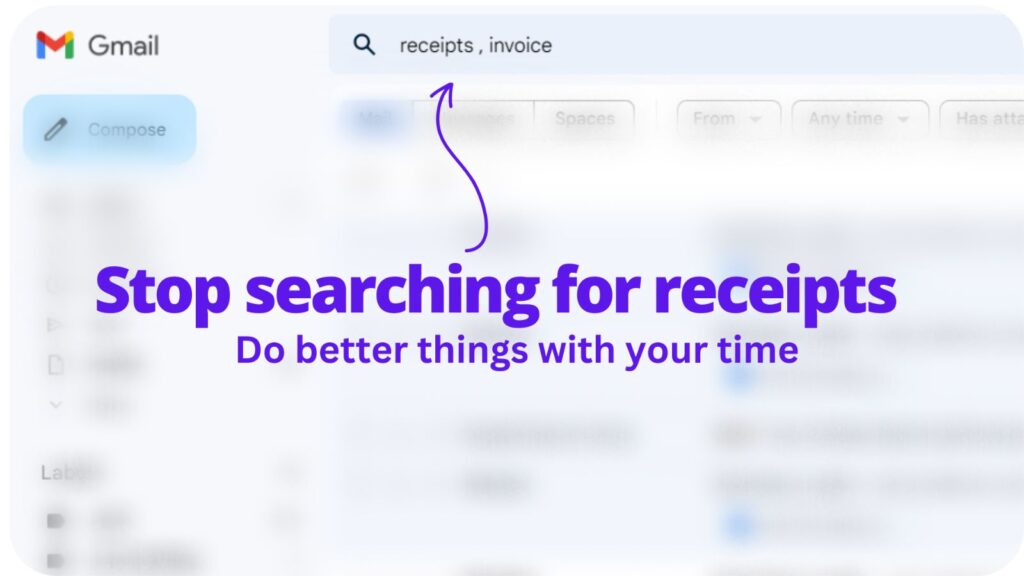Think of how AI has reshaped various facets of daily life. Now, imagine that transformative force applied to your bookkeeping. No more tedious data entry or number-crunching late into the night. With AI Bookkeeping, businesses find a smoother path to financial clarity.
This piece shines a light on cutting-edge software in the AI bookkeeping realm and shares tips that’ll make finance handling feel like a walk in the park. Dive in and see how AI can turn the tables on your bookkeeping challenges.
Understanding AI Bookkeeping: An Introduction
What is AI Bookkeeping?
AI Bookkeeping is like having a robot for your money matters. AI stands for “Artificial Intelligence.” Imagine this: instead of doing math homework, a smart tool does it for you. That’s what AI does for bookkeeping tasks. It’s a cool mix of technology and finance.
When we talk about money, there are many repetitive tasks. Things like entering data into accounting software. Or sorting out financial transactions. AI helps with these. For example, instead of you writing down every penny you spend, AI can automatically do it.
Why is it a Game-Changer?
Firstly, imagine playing a game and finding a secret move that helps you win. That’s AI for bookkeeping. It changes the rules, making everything easier and better.
Before AI, people spent hours on data entry. It’s like writing your spelling words ten times each. But AI takes over this job. It means businesses can focus on fun or important stuff. Like planning what to sell next.
AI makes fewer mistakes. We all sometimes write a word wrong or forget a math answer. AI helps reduce these mistakes in financial data. It’s like having a super spell-check for numbers. It doesn’t get tired or distracted. So, everything is more accurate.
Also, AI gives updates about your money in real-time. It’s like watching a live score of a game. You can see how much money you have or owe anytime. This helps businesses plan better.
Plus, with AI, you save money and time. Think of it as a toy that upgrades itself. You buy it once, but it keeps getting better. That’s how AI accounting software works. It learns and improves. So, instead of buying new tools, businesses can use what they have. It becomes smarter and more helpful over time.
Benefits of Integrating AI Bookkeeping into Your Business
Efficiency and Automation
Imagine if chores did themselves. For businesses, AI makes this almost true.
Data entry, like typing homework, gets tiring. AI helps here. Instead of people typing in financial data, AI does it swiftly. It’s like a super-helper.
This helper works with accounting software. All those lengthy bookkeeping tasks? Done faster. It’s a game-changer, making work feel like play.
Error Reduction
Everyone makes mistakes. In business, these mistakes can be pricey.
AI, with its sharpness, steps in. It handles tasks like invoice processing and cuts down on human errors. Think of it as a buddy who’s great at math. And, it keeps learning and getting better due to something called machine learning.
Above all, AI doesn’t just work. It gives tips and tricks. Using predictive analytics, AI helps businesses improve and grow.
For those just starting out or those who have been managing finances manually, understanding bookkeeping essentials for small businesses can provide a strong foundation to leverage these AI-driven tips effectively.
Cost Savings
Imagine a magic toy-making machine. No more buying toys, right? Similarly, AI helps businesses save big bucks.
It’s simple. Doing tasks faster and without errors means saving money. Fewer mistakes to fix and fewer people needed for repetitive tasks. It’s like a toy tidying up on its own.
Some might wonder about the AI accounting software cost. But think of it as an awesome toy. It’s worth every penny. Especially when comparing different AI and enterprise accounting software tools. The best ones offer insights to make smarter business choices.
Popular AI Bookkeeping Software Solutions
Top Players in the Market
Have you ever played with top toys? In the world of AI accounting software, there are “top toys” too.
Some of the best bookkeeper software solutions make data entry super easy. Imagine typing as fun as playing a game.
Moreover, many big accounting firms love these tools. They use them to manage money and other tasks. In the market, we see big names offering AI accounting software.
The best ai accounting software is like a cool toy robot. It knows how to automate repetitive tasks. That means less work for people.
Above all, the software learns and grows. Like how we learn new games. Machine learning helps the software improve over time.
Features to Look For
When choosing toys, we look for the coolest features. Similarly, when picking AI bookkeeping tools, we need to find the best ones.
Firstly, check if the tool can understand human language. It’s called natural language processing.
Also, does it give real-time financial insights? Think of it as a toy telling secrets about money. Secrets that help businesses make better choices.
Additionally, the software should work with other tools. Like how some toys work well together. In business, it’s called software integration. It’s all about teamwork.
The best tools also help in making reports. Just like when we show our toy collection to friends. These reports help businesses understand money matters better.
Another cool feature to look for is predictive analytics. It’s a fancy way of saying “guessing the future.”
Lastly, a top software should simplify bookkeeping tasks. Bookkeeping is like tidying up toys. The software helps keep things organized.
How to Transition to AI Bookkeeping Systems

Steps to Introduce AI into Your Financial Workflow
Switching to AI in accounting is exciting. Firstly, review your existing accounting. Know what you have.
Then, choose the right AI accounting software. Some learn on the go. That’s machine learning.
Ensure your data entry is tidy. Clean data means faster work. For example, AI can speed up invoice processing.
Also, connect your AI with other tools. For instance, link it to customer relationship management systems for smoother operations.
Above all, back up your data. It’s like having a spare toy, just in case.
Training and Adoption Strategies
After getting AI software, it’s learning time. Take it slow. Understand the basics of AI technology first, and discover best practices for implementing AI in your business.
Hold training sessions. It’s like group playdates with a new toy. Demos and examples help, especially with tools like predictive analytics.
Mistakes? They happen. AI helps reduce human error. Keep checking progress and get feedback. It helps fine-tune the process.
Maintaining Security and Trust in AI Bookkeeping

Ensuring Data Privacy
Imagine you have a special toy box. You want only trusted friends to see. That’s like your data in AI accounting software. It’s private.
Firstly, data entry should be safe. Think of it as placing a toy gently into its box.
But, however, not all accounting software is the same. Some protect your toys better. Always compare before you choose.
For example, some use artificial intelligence technology. They’re like toy guards. They keep your data safe from naughty hands.
Afterward, always back up your data. If one toy breaks, you’ll have another.
Most importantly, make sure your software is updated. Ensuring data privacy in AI-driven solutions is very important.
AI’s Role in Compliance and Auditing
AI helps a lot in the bookkeeping process. It organizes things.
Some AI tools are super smart. They use things like machine learning algorithms.
Accounting tasks can be tricky. But with AI, errors reduce.
For instance, if there’s a mistake in a wage tax report, AI spots it. Like a detective.
Moreover, AI helps in audit documentation. It’s like having a list of all toys you’ve played with. So, if anyone asks, you know.
Above all, trust in AI is crucial. Always choose software that’s trusted by many. Like picking a popular toy everyone loves.
Lastly, remember to keep learning. AI and accounting are always changing.
Future of AI Bookkeeping: What’s Next?
Emerging Trends
Firstly, we have accounting software. They sort and store your money puzzles.
Afterward, we noticed something. The magic boxes are getting smarter. Thanks to artificial intelligence or AI for short.
For example, some AI boxes can now chat with you. They use something cool called natural language processing. Also, some people are using ChatGPT in bookkeeping to help them work faster.
Above all, we can expect even smarter boxes. They will do accounting tasks even faster. No more manual accounting data entry.
And, AI will help businesses big and small. Whether it’s a small shop or a big company, AI will be there.
AI’s Growing Influence on Financial Decision Making
Now, imagine if a toy could give advice. That’s what AI is starting to do in accounting.
For instance, financial management is key. AI helps with that.
Moreover, with AI, finance teams can get better insights in future. AI uses something called predictive analytics capabilities.
Automate repetitive tasks, without getting tired.
Also, AI helps in making big money decisions. It can analyze financial data and give valuable insights. Like a wise old toy telling stories of the past.
Most importantly, no more human error. Humans sometimes forget, like leaving a toy outside in the rain. But AI doesn’t.
Lastly, as AI grows, we will see new trends. It might even change the entire finance department. Imagine a world where toys and humans work together. That’s the future with AI.
Frequently Asked Questions
How does AI accounting software compare to traditional accounting tools?
AI accounting software uses artificial intelligence to automate mundane tasks, reducing manual processes. This means less human error and faster financial tasks. Traditional tools rely more on manual data entry, which can be slower and prone to mistakes.
Are there any tasks that AI in accounting can’t handle?
While AI has transformed many financial processes, there are strategic tasks that still require human intervention. For instance, providing personal financial advice or understanding complex tax credits might not be fully automated.
However, AI can assist in these areas by providing real-time data analysis and realistic modeling data.
How does the cost of AI accounting software compare to regular software?
The cost of AI accounting software depends on its features and the vendor. Initially, AI-driven financial management software might seem more expensive. However, the efficiency gains and time saved can offset the cost. Also, it can streamline accounting processes, which might save money in the long run.
Is prior accounting knowledge needed to use AI bookkeeping tools?
Not always. Most AI accounting software is designed to be user-friendly. Even those without prior accounting knowledge can navigate and use them. The software can also guide users through tasks and generate reports, making it easier to gain valuable insights.
Conclusion
Embracing AI in accounting is a forward-thinking move for businesses, big or small. With the rise of top bookkeeping apps, it’s not just about automating repetitive tasks but transforming the way accounting functions operate.
With tools that reduce human error, provide real-time insights, and even predict financial performance, the future of accounting is undoubtedly leaning toward AI. It’s like upgrading your old toys to smarter, more efficient versions that not only make work fun but also incredibly efficient.
All in all, as AI continues to evolve, so will the scope and breadth of its application in the world of bookkeeping.

Collect receipts from your email automatically!
Try WellyBox - your AI assistant for receipts😃
Start for Free
